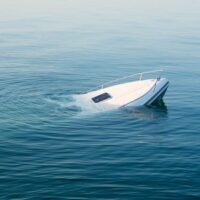WHAT IS A LIMITATION OF LIABILITY SUIT AND WHAT HAS TO BE DONE?

Attorneys and non-attorneys if a Limitation Of Liability Action (LOLA”) has been filed against you—or if you are an attorney and a LOLA has been filed against your client–then you need to act quickly. First, ask yourself, do I know anything about maritime law? If the answer to that question is: NO, then you need to find a maritime attorney to represent you—or if an attorney who mainly handles auto cases, to represent the client. Understand who is behind a LOLA action and why they are doing it. LOLA actions are filed on behalf of “owners” of a vessel, but the truth is almost always it is an insurer pushing the issue. Second, why are they doing it? Read this carefully: Because they want to limit any recovery for damages caused by that vessel and vessel owner to the worth of the vessel after any accident or casualty has occurred. For instance, if an owner of a recreational vessel crashes his vessel into another vessel and causes injuries or death, the insurer is trying to limit any recovery for ALL claimants to the worth of their insured driver’s vessel. To state it further, if the insured vessel is only worth $1000 after the incident, that is the value to which the insurer is seeking to limit ALL claimants.
WHAT ABOUT A LOLA WHEN THE VESSEL HAD A LOT OF INSURANCE?
It doesn’t matter how much insurance was on the vessel, the objective of the insurer is to ask the federal court judge to limit the recovery of all claimants to the worth of the crashed vessel—in this example, $1000. That is the strongest incentive for the marine insurers to file these LOLA actions. In most cases where an insurer is involved the amount of available insurance is greater than the worth of the crashed, sunken, burned, etc. vessel. But again, that’s why the boating insurers push these LOLA actions.
WHAT TO DO ABOUT A LIMITATION ACTION?
Ask yourself these further questions:
Do I know what law applies to these LOLA actions?
Have I ever practiced in federal court?
Have I ever handled a LOLA action previously?
What is the downside to giving it a go and see what happens?
- Maritime law applies to Limitation actions. But that is the easy part. Florida law does not apply to Limitation actions. There are multiple traps and ways to lose to a Limitation action.
- If a pro se claimant or the attorney has never practiced in federal court, note that in addition to the application of this unique area of law, not knowing procedures, deadlines and filing requirements can get your case (or for attorneys—your client’s case) defaulted or dismissed with prejudice.
- If you have never handled a LOLA action previously this is not the type of case to dabble in this unique law. There are multiple pitfalls. As an analogy, a kidney surgeon does not try to perform heart surgery; they defer such surgeries to heart surgeons. Just as there are Trademark attorneys, Securities attorneys, Aviation attorneys, Criminal law attorneys, and Divorce attorney specialists, there are specialists in maritime law. But it has been estimated that there are fewer than 100 maritime attorney practitioners in Florida, and more than half of them work for insurance companies, not for claimants.
- The downside to jumping into a LOLA action for the first time is at least two-fold. First, there are the above procedural requirements in federal court and the laws and rules which govern Limitation actions. The second is that you will be facing a seasoned maritime defense attorney who knows what they are doing. They have already filed a Limitation action, and that maritime defense attorney has to have a very good wealth of knowledge in order to be able to do that and have the federal judge sign off on it.
LIMITATION ACTIONS HAVE DEADLINES
Limitation actions have deadlines that must be followed within which to timely file a proper claim and to file a proper response to the Limitation Petitioner’s (i.e., the vessel owner’s) Petition. The time to respond is not completely uniform; a judge has discretion to set the deadline when the judge signs the injunction Order. Sometimes the response time is 60 days, sometimes 30 days, or another time frame; it is wholly up to the judge. However, once that default deadline is set, both a proper claim and a proper response to the Petitioner’s Petition has to be filed in federal court or the claim(s) can be forever barred.
WE ARE SPECIALISTS IN MARITIME LAW. THIS IS WHAT WE DO.
Make no mistake, the insurer will try to make a case whereby the vessel owner obtains a declaration of complete “Exoneration”. That is why most LOLA actions are titled “Exoneration from or Limitation of Liability”. We have been fighting Limitation actions for 25 years. If you have been served or are on notice of a Limitation action filed against you—or your client—you have only a very limited amount of time to respond. This has to be done timely. Trust the attorneys and law firm who have been fighting Limitation of Liability actions across all of Florida for 25 years.
CONTACT US NOW. THE TIME TO RESPOND IS RUNNING OUT.
1-888-B-O-A-T-L-A-W. MAIN OFFICE TAMPA BAY
